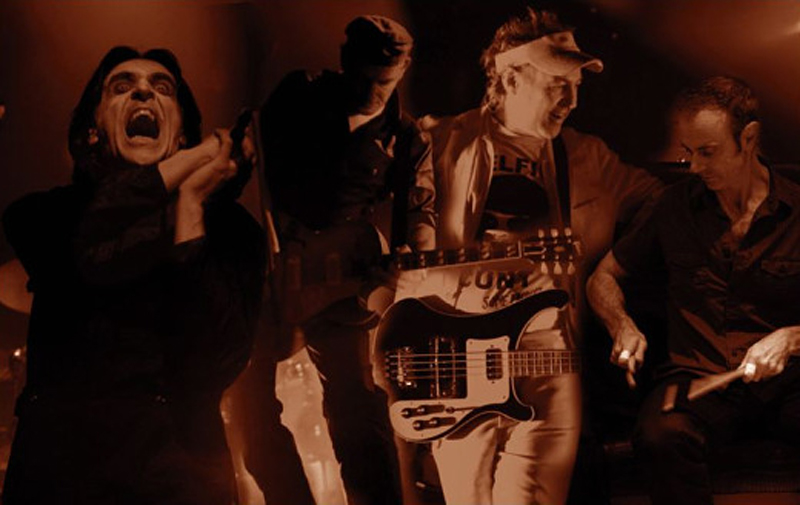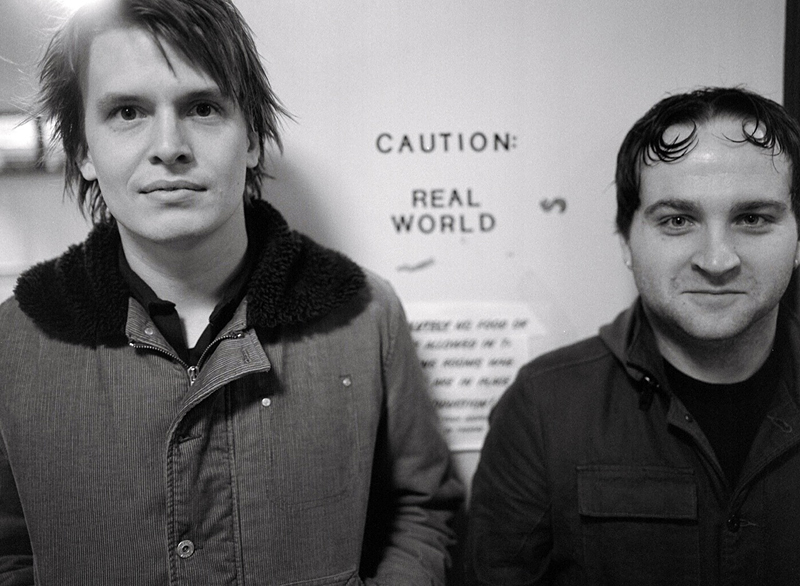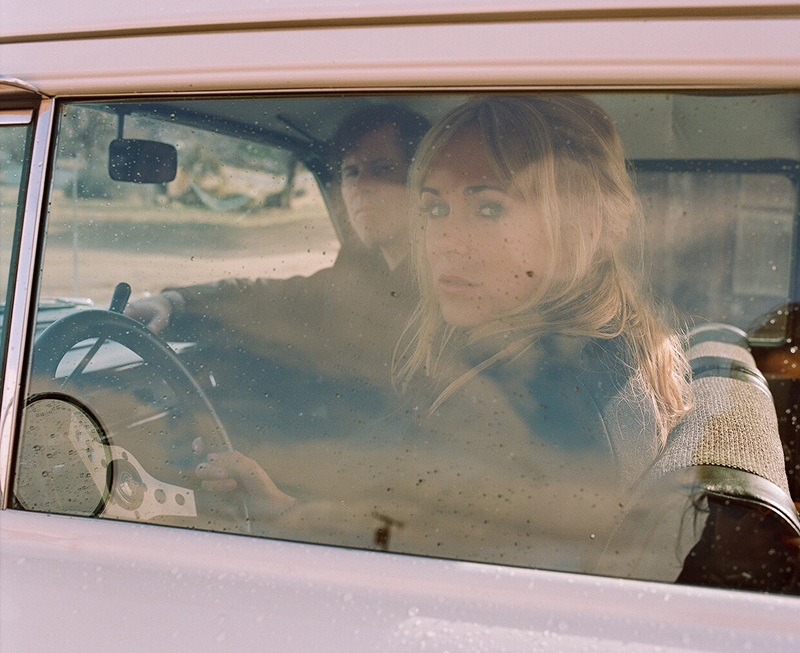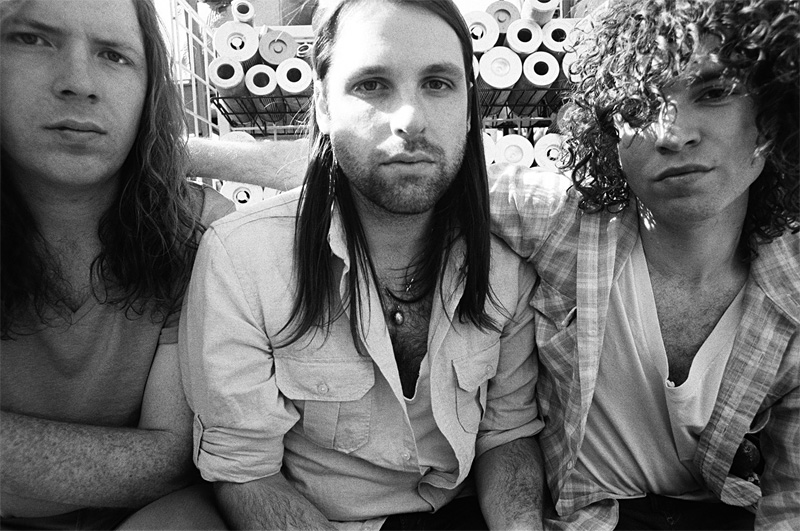There are three titles anyone with a passing knowledge of Jeremy Enigk’s history might expect to see on his business card: “Former Sunny Day Real Estate Frontman,” “Godfather of Emo,” “Born-Again Christian.”
The first one is fact: From 1993 till their disbanding in 1995, and then again from 1997 until calling it quits in 2001, the singer/guitarist led the powerful Sunny Day Real Estate, certainly one of Seattle’s most beloved acts. The second one is almost too silly to even contemplate. And the third one, well, is a little complicated.
It was Enigk’s infamous late-1994 “Jesus Christ Is Lord” online posting that essentially caused the band’s first disintegration. He’s also made no secret of the fact that before his religious epiphany and conversion, he was a tortured soul—his pain particularly palpable on both Sunny Day’s 1994 debut, Diary, and its 1995 follow-up, LP2 (otherwise known as the “Pink Album”)—and that in the years since, he’s become happier, calmer, and far more comfortable in his own skin. Still, he would much rather be thought of as a Christian who rocks than a Christian rocker.
Naturally, Enigk has an aversion to all titles and categories, and when I chat with him, I tell him that we don’t have to talk about any of these topics. Of course, we do end up talking about that stuff (although the E-word is never so much as uttered), mostly as it relates to the emergence of his second solo album, World Waits. Enigk released the disc on his own Lewis Hollow Recordings label in October, a full decade after his bombastic, prog-tastic 1996 debut, Return of the Frog Queen; its appearance was delayed both by Sunny Day’s late-’90s re-formation and Enigk’s subsequent, now-on-hiatus trio, the Fire Theft.
While his work with both bands always reveled in the personal, Enigk says that these days he’s more interested than ever in capital-S Saying Something. “After Sunny Day broke up the last time, you know, Dan [Hoerner, the band’s guitarist] was such a huge part of Sunny Day’s lyrics, so after that I had to discover how I wanted to do it, how I wanted to write. Plus, the age I had gotten to, I started to get more concerned about what’s happening in the world and using my beliefs to create some sort of a positive message.”
Speaking to him about his faith, and how it manifests itself in his music, reminds me of conversations I’ve had with two other Seattle songwriters: Damien Jurado and ex–Pedro the Lion leader Dave Bazan. Like Enigk, both are deeply religious people who create from the heart and would be fundamentally dishonest if they didn’t allow their convictions to seep into their art. Yet both have been more inclined to empathize rather than proselytize, examining the human condition and exploring themes of frailty, redemption, and even religious doubt in their work while steering clear of strict dogma or propaganda. Similarly, there’s nary a mention of Jesus anywhere in World‘s lyric sheet, and—like U2 (Enigk’s favorite band), who’ve successfully navigated the fine line between the Christian and secular worlds for a quarter-century—Enigk’s words typically hew toward the universal. Still, when he sings, “I cannot change any man’s hate/But I can make known forgiving waters that flow,” in “River to Sea,” or, “I don’t know sometimes/You tell me when I’m wrong/Honoring who made the skies and the wind blow/If you ask you’ll see,” in “Damien Dreams,” it’s not hard to discern what he’s getting at.
“This is music for everybody and anybody,” Enigk insists, while acknowledging that not all hearts and minds will be open to his messages. It would be difficult, however, for a listener not to be swayed by the stunning quality of the music on World Waits. Though it features more than two dozen musicians—including singers Rosie Thomas and Jen Wood, current and former members of Crystal Skulls and Pedro the Lion, and a host of string players—the album’s neither as swollen nor as histrionic as Frog Queen, but it maintains an epic sweep while relying on simple melodies gorgeously rendered by acoustic purrs, ringing arpeggios, pillowy keyboards, and the intermittent grandeur of a church organ or symphonic passage. And, as always, Enigk sings like an angel—high (though not as strained as on recordings past) and impossibly pretty.
But for all the sound, and talk, of serenity and uplift, there remains a touch of disquietude within Enigk, which he reveals when I ask him whether he ever denies any feelings or impulses when he’s writing songs. “I am constantly editing myself and pulling punches because I don’t wanna say things that . . . basically, I have a lot of intense opinions, but some of them, I think that they might be wrong. They’re just sorta maybe mean or angry or even too lovey-dovey. . . . I can’t really give you an example, but I sometimes get a little extreme with my thinking, and I know it’s not quite the peaceful route to go, so I hafta harness it, I hafta hold back a little bit.”
So what are you afraid might happen? I inquire.
He’s silent for a good half-minute, asking himself.
“I guess as long as in the end there’s a positive message from an angry lyric, then I’ll be satisfied, because I always wanna keep hope in the mix and always keep a positive thing going on. I don’t wanna feed the beast, you know?”








